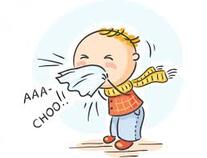WINTER SPORTING ACTIVITIES & TREATMENTWith the winter season now upon us, the U.S. Consumer Product Safety Commission has indicated that each year approximately 150,000 people seek medical treatment following a snowboarding or skiing mishap. Unfortunately, even a minor winter sporting activity can develop into a long-term issue for someone that likes to ski or snowboard. Fortunately, knowledge of some of these common Winter sporting activities can allow treatment of these issues in an effective manner. Prevention of these injuries is also possible.
Prevention Tips For Winter Sports Injuries A few effective ways to reduce the injuries received when involved in winter sports include the following:
Some of the best ways to reduce the risk of snow sports injuries include:
It is also extremely helpful to become familiar with various preventative and treatment measures by enrolling in a first aid course. Enrollment in a basic first aid training course is beneficial for anyone involved in winter sporting activities as it empowers the individual with basic lifesaving skills that can be used to help facilitate treatment of winter sports injuries.
Comments
INFLUENZA 101Flu season is here. Did you prepared? Let's look at a few questions surrounding the flu and its impact on people not only in Texas but across the United States.
WHAT IS THE FLU? The flu is a contagious respiratory disease. With the flu, the upper and lower portions of the respiratory tract are attacked by the virus. People are often more susceptible to the flu during the Fall and Spring. During these seasons, the flu is easily transmitted from one person to another. For example, a person who handles items contaminated by someone who has the flu virus may be exposed to flu germs. In this scenario, a flu virus infection may then occur. The flu virus affects men, women and children, and the U.S. Centers for Disease Control and Prevention (CDC) Foundation reports between 5% and 20% of the U.S. population gets the flu annually. Further, the CDC Foundation notes tens of thousands of people are hospitalized due to the flu virus each year, and thousands of people die annually due to flu-related illnesses. WHAT ARE SOME SYMPTOMS OF THE FLU? Some common flu symptoms include the following:
HOW CAN I TREAT THE FLU? If a person believes they are fighting a flu virus, over-the-counter (OTC) drugs may help flu like symptoms to quickly subside and/or may prevent any further flu symptoms. Oral or nasal decongestants often help those with swelling of the nasal passages. In addition, people who are experiencing sneezing related to the flu or nasal discharge can use an antihistamine to help relieve these issues. The use of antiviral drugs may also help a person overcome his or her flu symptoms. These drugs are designed to reduce the severity and duration of flu symptoms. In some instances, they may help a person prevent flu symptoms as well. For those seeking optimal care, a consultation with a doctor allows an individual to receive expert insights into his or her flu symptoms. Best of all, a doctor can help a person determine which OTC or antiviral drugs or other flu treatments to use and ensure that these treatments won’t interfere with an individual’s current medications. WHAT CAN I DO TO LIMIT THE RISK OF CROSS CONTAMINATION AND/OR INFECTION? The flu virus can progress rapidly and can effect anyone but there are several precautions that we can use. Wash Your Hands Frequently: Use soap and clean running water to wash your hands regularly throughout the day for 20 seconds at a time. Also, if soap and water are unavailable, use an alcohol-based hand rub to clean your hands. Keep Your Hands Away From Your Face: Touching your eyes, biting your fingernails and other activities that involve your nose, eyes and mouth may cause flu germs to spread. Therefore, you should try to keep your hands away from your nose, eyes and mouth whenever possible. Get The Flu Shot: Annual flu vaccines are available at pharmacies and medical treatment centers nationwide. You may even be eligible to receive a yearly flu shot free of charge. Disinfect Contaminated Surfaces: Perform regular home and office cleaning. That way, you can clean and disinfect surfaces that otherwise may be contaminated with flu germs. Get Plenty of Rest: Sleep allow the body to heal and to combat infection. Try To Avoid People Who Are Sick: This can be difficult. But if possible, if a friend or fellow employee is experiencing flu-like symptoms then you should avoid this individual for the time being. Stay Hydrated: Drinking lots of water and other fluids can help boost the immune system as well prevent headaches. Follow Your Physician's Order: Consult with a doctor to determine the most effective method to treat the flu symptoms. During this year's flu season, take extra precautions to stay healthy. Be well. |
AuthorDr. Tracy A. Jones is the CEO of Help-A-Heart CPR, LLC and an American Heart Association, ASHI, and American Red Cross Master Program Trainer, Instructor, & AHA Faculty Member located in San Antonio, Texas. Archives
June 2024
Categories |
Help-A-Heart CPR, LLC | 1747 Citadell Plaza Suite 101 | San Antonio, Texas 78209 | (210) 380-5344 | [email protected]
Copyright © Help-A-Heart CPR, LLC 2024
100% Certification Acceptance
We promise your employer, school, or agency will accept the certification card we issue to you. If there is a question of acceptance or validity, simply send us an email at [email protected] with full details. We will reach out to the individual/entity and provide accreditation information. If still there’s a question, we will provide you with a full refund of your class fee. It’s that simple.
We promise your employer, school, or agency will accept the certification card we issue to you. If there is a question of acceptance or validity, simply send us an email at [email protected] with full details. We will reach out to the individual/entity and provide accreditation information. If still there’s a question, we will provide you with a full refund of your class fee. It’s that simple.
|
Communities Served
ALABAMA: Birmingham
ARKANSAS: Fayetteville, Hot Springs, Jonesboro, Little Rock NEW MEXICO: Albuquerque TENNESSEE: Knoxville TEXAS: Amarillo, Arlington, Austin, Bandera, Bastrop, Boerne, Brownsville, Comfort, Converse, Corpus Christi, Dallas/Ft. Worth, Del Rio, Dripping Springs, El Paso, Floresville, Fredericksburg, Georgetown, Harlingen, Houston, Junction, Katy, Kerrville, Kingsville, Kingwood, Laredo, Lubbock, Lufkin, McAllen, Midland, New Braunfels, Odessa, Pleasanton, Round Rock, San Angelo, San Marcos, Schertz, Seguin, Taylor, Temple, Texarkana, Tyler, Universal City, Victoria, Waco, The Woodlands |
Why Choose Help-A-Heart CPR?
1. Flexible Scheduling
2. On and Off Location Training Available 3. Casual, Fun Atmosphere 4. Best Price Guarantee 5. All Instructors are AHA and/or ARC certified 6. 5 Star Google Reviews 7. Blended Learning (Online & Skills Check) Available 8. Meets OSHA & College CPR Requirements 9. Get Certified Within 3-4 Hours 10.Certification Is Good For Two Years 11. Official AHA/ARC/ASHI Training Site 12. High Quality Safety Training! |









